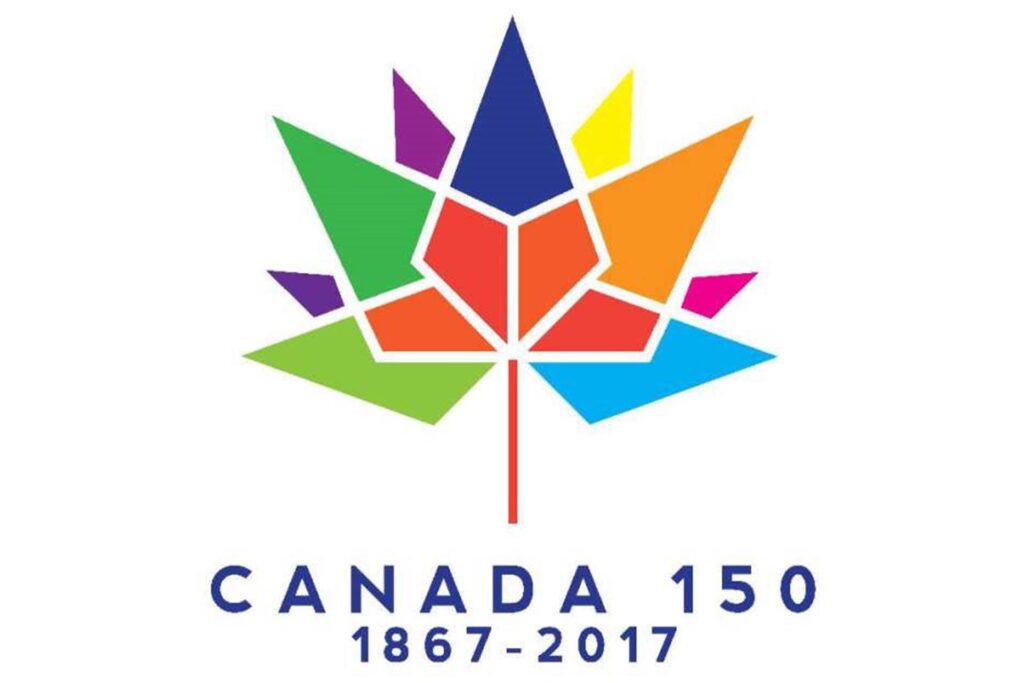Many of us will not be around when Canada celebrates its 200th birthday in 2067, and none of us were present when the nation turned 50 in 1917, so most of us will have lived through two of the country’s anniversaries by the end of their life…Canada’s 1967 Centennial, and the upcoming Sesquicentennial next year. Quite a natural thing, then, to want to compare what the country was like 50 years ago, when we were young, with what we see today. It was, by all accounts, a different world that young Canadians would not recognize, as we were still an innocent and relatively unsophisticated nation by today’s standards, although life was so good that historian Pierre Burton always referred to 1967 as “Canada’s last good year”. After all, we held the most successful World’s Fair of all times, one of the first events held in Canada to ever garnish international attention. Then there were those Maple Leafs, winning their 13th and apparently last Stanley Cup. Charles de Gaulle visited the country and changed its history with the infamous “Vive le Quebec libre” declaration, while marijuana was in the news almost as much as it is today but in 1967 it was because of a radical new “hippy culture” which was taking over the rather dubious neighborhood of Yorkville. Lester B. Pearson was the Prime Minister, and the nation was getting to like a playboy bachelor from Montreal, Pierre Elliott Trudeau, who would sweep to power the following year after Pearson announced his retirement from politics.
Today, while we still talk about things like marijuana and have a leader named Trudeau, the world is a different place, a troubled place with endless conflicts and terrorism, refugees fleeing countries because of war and now environmental catastrophes brought about by climate change, political uncertainty even with our neighbor and friend to the south, and profound economic shifts that appear to have taken a lot of jobs out of North America and seriously eroded one of the greatest successes of North American society…a large middle class with spending power and upward mobility. It would not be accurate or intellectually honest to say that we live in happy times, and yet we all know that Canada is faring far better than most, an island of relative stability where people still have hope in the future and that of their children. For that reason, even if it were the only reason, Canada must and shall celebrate its 150th birthday next year, and the Empire Club will kick off this celebration with a luncheon event on June 3rd featuring the Chief Justice of the Supreme Court of Canada, Beverley McLachlin. She will examine in detail one of the cornerstones of our democracy and what many believe is one of the reasons that we enjoy so many rights and freedoms, a judicial system that is independent and helps ensure a secure legal framework as one of the most fundamental of constitutional principles.
One of the highlights of 1967 at the Empire Club of Canada was an address by the new Governor-General, the Rt. Hon. D. Roland Michener assumed this office after former Governor General George Vanier died in office earlier that year. While a good deal of the speech was about how great our quality of life was in Canada, Michener ended his speech with an idea that is still as relevant today as it was 50 years ago, that to save the world would take a collective effort by all of mankind, something that no nation could accomplish alone. Here is an excerpt from that memorable speech:
“Man has still to be saved from his own folly, and by man I mean all men, for I am convinced that, in the long run, our species will have a common fate, be it good or bad. Let us not become obsessed with pride in the reputation we enjoy in the world, nor too modest to make the full contribution of which we are capable.”
Canada will celebrate its 150 birthday with a new maturity of being an admired and well-run nation that works, where respect and tolerance are embraced as national characteristics which will help us deal with the many challenges ahead. And yet, we are only one player, and we all know that, so recognize that we must continue to operate on the world stage, not as a military or economic superpower, but rather as a country that leads through example. It is an extraordinary opportunity for the nation to quietly set an example to the world of a place where people pull together, as we did last week in the latest example of the ravages of climate change which burned one of our energy centers almost to the ground. The rest of the world watched our reaction to this event and was impressed with how citizens came together to help each other. Building on the values put in place by our democratic institutions such as the Supreme Court, Canadians should celebrate 2017 not because the world is a happy place, because most would agree that it is not, but because Canada has a chance to lead through example and show that even in hard times, our country is still one of the best places left on the planet to live out healthy and productive lives where there is still hope for a prosperous, safe and meaningful future for our children and all of the children who will come after them. That is, to be sure, something to be enormously grateful for and a good reason to celebrate our first century and a half as “the true north strong and free”.


